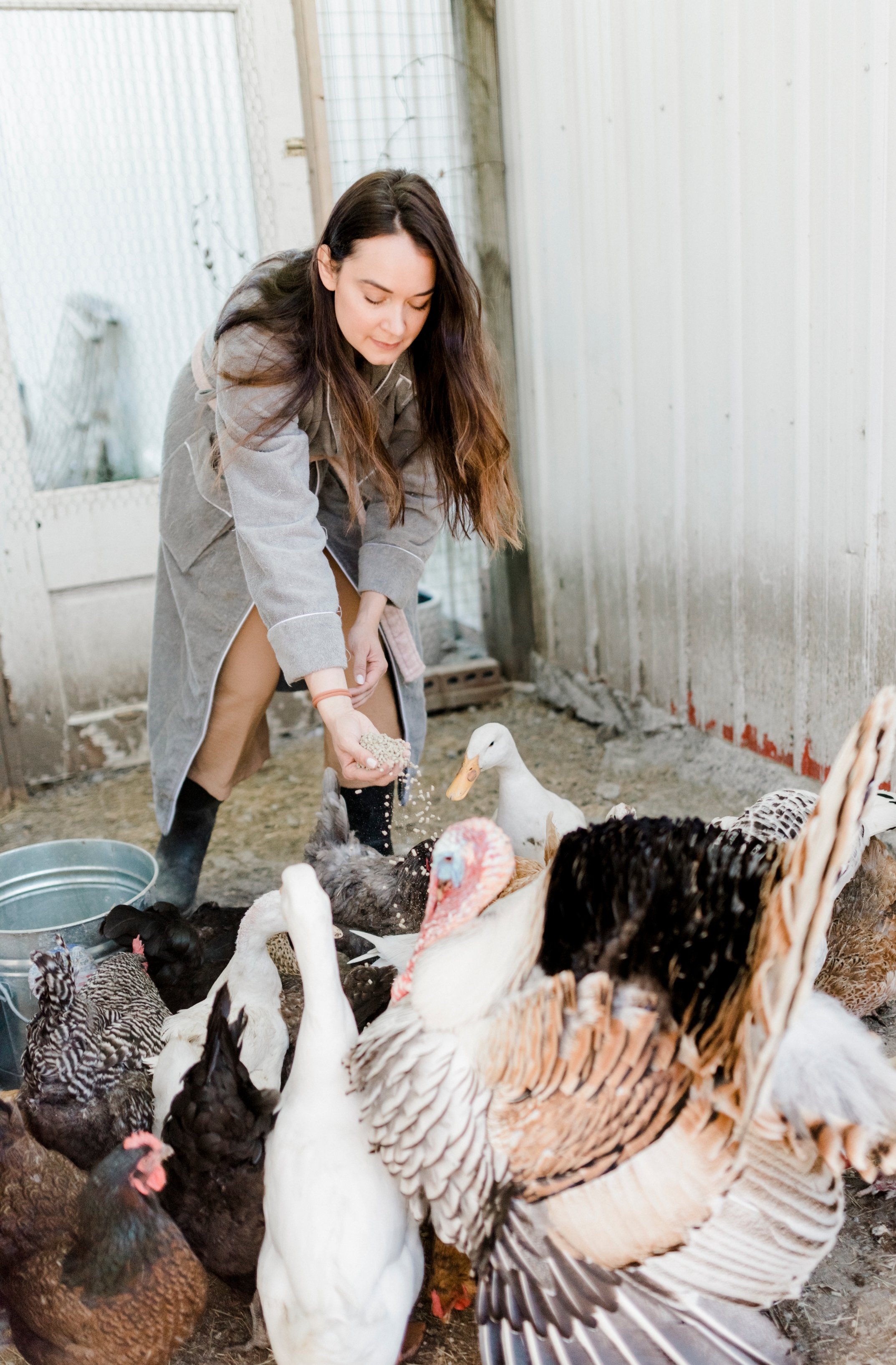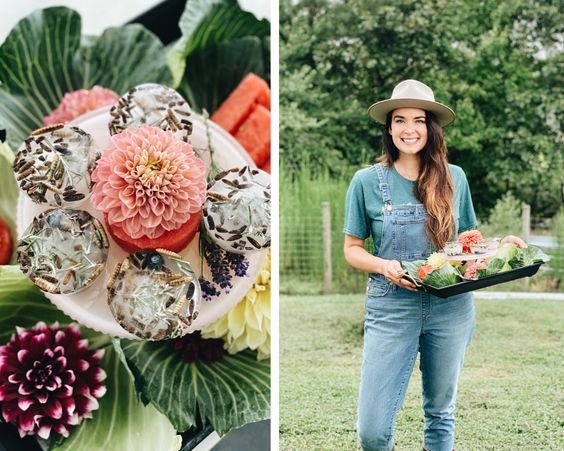A Complete Guide on Foods not To feed Chickens and Ducks
If you have chickens or a mixed flock, you know how much they like treats and scraps other than their regular feed. Dare I say that my flock even like treats more than my toddler?!
Truth be told, I love giving them treats and seeing how much they enjoy it! It makes my heart and theirs happy.
While there is no shame in giving your flock treats or table scraps, moderation is key. Treats or table scraps should only make up about 10 - 15% of their diet; the rest should be good quality feed suitable for the type of bird.
Also, if you give too many treats, your flock might not forage for worms, critters, bugs, and plants on their own, becoming dependent on the daily treat.
There are, however, treats or food that you should NOT GIVE TO YOUR FLOCK. These can pose a serious threat, cause poisoning, and be fatal.
READ MORE: CARING FOR CHICKENS 101
READ MORE: WHAT TO FEED DUCKLINGS
Foods That Are Toxic To Your Chickens And Ducks
Bread
Although we all grew up feeding ducks bread, it is, in fact, not good for them at all. Bread has nearly no nutritional value, can cause deformities, and gets stuck in the bird's crop. Also, a diet rich in carbs would cause excessive pooping, and no one wants that!
Raw Meat
Raw meat should not be given to chickens and ducks, as it can carry the risk of salmonella and other harmful bacteria.
Raw eggs
Yes, your flock can actually eat eggs, as long as they are cooked! Although not harmful, raw eggs may entice them to start eating their own eggs, and this is a difficult habit to break.
Avocado pits and skins
The leaves of an avocado plant and the pit and skin of an avo contain a toxin called person, which can be fatal for chickens and ducks. It can cause respiratory difficulty, weakness, heart damage, and sudden death. I would also advise avoiding the flesh in case there were any traces in the flesh.
Fruit pits and seeds
Most fruits are safe to give to your flock and beneficial. But do not give them fruits with seeds like apples and pears and pits like cherries, plums, peaches, and apricots without first removing the seeds and pits. They contain small amounts of a cardiac-toxic cyanide compound and can be fatal. You can still give them these fruits without the seeds and pits!
Rhubarb & Rhubarb leaf
Rhubarb contains anthraquinones, which can have a laxative effect on your chickens and ducks. When damaged by severe cold, it can have a fatally high concentration of oxalic acid.
onion & garlic*
Onions contain sulfur compounds that can irritate a bird's mouth, esophagus, or crop and cause ulcers. Onion and garlic can also change the flavor of your eggs if you want to eat them.
*Note! Garlic is NOT toxic and can actually be helpful with respiratory issues and lots of other things. I give it to my chickens in raw and powdered form. Since I don’t eat my chicken eggs, I don’t worry about the eggs’ flavor being affected by garlic.
Raw potatoes and peels
These contain a toxin called alkaloid solanine, which can harm birds. Sweet potato peels are, however, safe to give to your chickens.
Green potatoes and tomatoes
Solanin and chaconine are toxins found in green potatoes and green tomatoes. It will cause drowsiness, paralysis, and eventually, death. Skip any part of the potato which is green and tomatoes which are unripened. Solanin will not disappear when cooking, so just avoid it.
Undercooked or dried beans
Ducks and chickens should never eat raw or dried beans. Beans contain phytohaemagglutinin, a toxin that is fatal to birds when not cooked, and kidney beans are the worst culprit. Keep any bean plants well away from your chickens and ducks.
Salt and salty foods
Salt can affect the bird's electrolyte and fluid balance and cause excessively wet feces, thirst, dehydration, kidney failure, and death. Food with a high salt content can also cause deformities in their eggshells over time.
Processed and very greasy foods
These foods are not even healthy for us, so why would they be for chickens and ducks? It can lead to weight gain, heart problems, and other health problems. So no pizzas or sausages…
Caffeine
Drinks containing caffeine can be toxic to birds as they can increase heart rate, induce arrhythmias and hyperactivity, and even cause cardiac arrest.
Chocolate
Don’t feed chocolate to your birds. Chocolate contains theobromine and caffeine, which can cause vomiting, diarrhea, increased heart rate, hyperactivity, tremors and seizures, and even cause death in your flock. You can lose your beloved bird within 24 hours of eating the chocolate.
Produce with mold
The mold that grows on soft fruits, nuts, corn, and apples produces toxins known to contribute to the development of liver cancer in humans and animals. Also, ensure your flock's feed does not become damp to avoid mold growth.
Treats And Food Safe To Feed To Chickens and Ducks
Grains
All grains such as rice (always cooked), wheat, corn, and oats.
Fruits
Almost all fruits are acceptable, and watermelon, strawberries, and blueberries are often favorites. Apples, pears, cherries, plums, peaches, and apricots are safe if you remove their seeds or pits.
The seeds from grapes, citrus fruits, squash, pumpkins, tomatoes, melons, mango, pomegranate, and berries are all safe for your flock.
Vegetables
Cooked or raw, most are safe. Dark leafy vegetables will result in darker, richer yolks. Lettuce, kale, broccoli, carrots, cucumber, and pumpkin are all excellent options.
Cooked Meat
Cut into small bite sizes, give in moderation, and avoid fats.
Eggshells
They are a great source of calcium. Just make sure you crush them into small pieces.
Cooked Eggs
It may be weird, but chickens love eggs, which are a great source of protein and calcium.
Cooked Beans
Soak beans in cold water for at least five hours, then rinse the beans thoroughly and boil rapidly in fresh water for at least thirty minutes.
Herbs
Basil and oregano are great for the immune system.
Nuts
Always shelled and unsalted, in moderation and in smaller pieces.
Grass cuttings
As long as they didn’t have any pesticides or fertilizers applied.
These frozen summer flock treats are a favorite among my flock!
I also love hanging a ball of cabbage, broccoli, or cauliflower for the flock which keeps them entertained for hours!
I hope this guide helps you in knowing what is safe to eat and what is not for your flock!
Love, Annette xx
PIN FOR LATER




